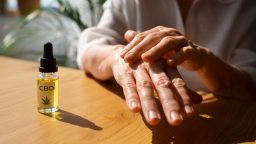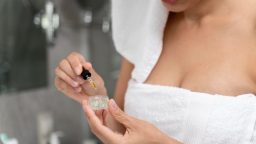Dealing with acne can be frustrating, especially when you’re trying to avoid harsh chemicals and medications. Fortunately, there are several natural remedies that can help manage and even reduce acne breakouts. Many of these remedies use ingredients that you likely already have at home or can easily find in natural health stores. From soothing oils to exfoliating masks, these remedies are gentle on the skin while helping to fight acne-causing bacteria, reduce inflammation, and promote healthier skin. Here are some effective natural remedies for acne-prone skin.
- Tea Tree Oil for Acne
Tea tree oil is a well-known natural remedy for acne, thanks to its powerful antibacterial and anti-inflammatory properties. It helps to kill acne-causing bacteria, reduce inflammation, and prevent future breakouts. Tea tree oil is particularly effective for people with oily skin, as it helps balance oil production while fighting acne.
- How to use it: Dilute tea tree oil with a carrier oil like coconut or jojoba oil (about 1-2 drops of tea tree oil to 12 drops of carrier oil) and apply it directly to acne-affected areas with a cotton swab. Leave it on for a few hours or overnight. Make sure to do a patch test first to avoid skin irritation.
- Aloe Vera for Soothing and Healing
Aloe vera has been used for centuries to treat various skin issues, including acne. It has anti-inflammatory properties that help reduce redness and swelling, while its cooling effect soothes irritated skin. Aloe vera also promotes healing, making it great for healing acne scars and preventing further scarring.
- How to use it: Apply fresh aloe vera gel directly from the plant to your acne-prone areas. Let it sit for 10-15 minutes before rinsing it off. You can use aloe vera twice daily to help calm inflammation and promote skin healing.
- Honey and Cinnamon Mask for Acne
Honey is a natural antibacterial agent, and when combined with cinnamon, it can work as a powerful acne-fighting mask. Cinnamon has anti-inflammatory properties that help reduce swelling, and it also helps increase blood circulation to the skin, promoting healing.
- How to use it: Mix 1 tablespoon of honey with 1 teaspoon of cinnamon to form a paste. Apply this mixture to the affected areas and leave it on for 10-15 minutes before rinsing off with warm water. Use this mask 2-3 times a week for the best results.
- Apple Cider Vinegar as a Toner
Apple cider vinegar (ACV) is a popular natural remedy for acne due to its antibacterial and exfoliating properties. It helps balance the skin’s pH level and can fight bacteria and yeast that contribute to acne. The acids in ACV also exfoliate the skin, removing dead skin cells that can clog pores.
- How to use it: Dilute ACV with water (1 part ACV to 3 parts water) to make a toner. Apply it to your face with a cotton pad, focusing on acne-prone areas. Be sure to start with a more diluted solution if you have sensitive skin, and use this remedy no more than once a day to avoid irritation.
- Green Tea for Acne
Green tea is rich in antioxidants, especially catechins, which have anti-inflammatory properties that help reduce acne. Studies have shown that green tea can help reduce oil production and prevent the growth of acne-causing bacteria. Drinking green tea and applying it topically can both benefit acne-prone skin.
- How to use it: Brew a cup of green tea and allow it to cool. After cleansing your face, use a cotton pad to apply the green tea to your skin, or simply use the tea bag directly on acne-affected areas. Leave it on for 15-20 minutes before rinsing off. You can also drink green tea daily to benefit from its internal healing properties.
- Witch Hazel for Acne
Witch hazel is a natural astringent that helps remove excess oil, shrink pores, and reduce inflammation, making it an excellent remedy for acne-prone skin. It also has antibacterial properties that can help prevent acne outbreaks by cleaning and disinfecting the skin.
- How to use it: Apply witch hazel to a cotton ball and gently swipe it across your face after cleansing. Avoid using it on broken skin or large areas of irritated skin. You can use witch hazel twice daily for acne treatment.
- Turmeric for Acne Scarring
Turmeric contains curcumin, an antioxidant with anti-inflammatory and antimicrobial properties that can help heal acne and reduce scarring. It’s particularly effective in calming redness and irritation associated with acne.
- How to use it: Mix turmeric powder with a small amount of honey or yogurt to create a paste. Apply this paste to acne scars and leave it on for 10-15 minutes before rinsing off. You can also make a turmeric face mask by mixing turmeric with a bit of coconut oil. Use it once a week to promote healing and reduce scarring.
- Jojoba Oil for Hydration
Jojoba oil is a non-comedogenic oil (meaning it won’t clog pores) that is very similar to the natural oils produced by your skin. It helps balance oil production and is moisturizing without being too greasy. Jojoba oil also has anti-inflammatory properties, making it helpful for reducing acne-related redness.
- How to use it: Apply a small amount of jojoba oil to your face after cleansing. You can use it daily to hydrate and balance your skin. Jojoba oil is safe for most skin types, including acne-prone skin, as it won’t clog pores.
- Lemon Juice for Brightening and Exfoliation
Lemon juice is packed with vitamin C, an antioxidant that helps brighten the skin and fade dark spots caused by acne. It also contains citric acid, which naturally exfoliates the skin and helps to unclog pores.
- How to use it: Mix a few drops of fresh lemon juice with water and apply it to acne scars or dark spots with a cotton pad. Leave it on for 5-10 minutes, then rinse with warm water. Be cautious when using lemon juice on your skin, as it can increase sensitivity to sunlight, so always wear sunscreen after using it.
- Zinc Supplements for Acne Control
Zinc is an essential mineral that supports healthy skin and immune function. It has been shown to help reduce inflammation, regulate oil production, and promote healing, which makes it a useful remedy for acne.
- How to use it: Consider taking a zinc supplement after consulting with a healthcare professional, as high doses of zinc can cause side effects. Topical zinc creams or gels are also available and can be applied to acne-affected areas to reduce inflammation and control oil production.
Conclusion
Managing acne naturally doesn’t have to be difficult or expensive. Many of these remedies involve simple ingredients that can soothe, heal, and prevent acne without the harsh chemicals found in some commercial treatments. Be sure to test any new ingredients on a small patch of skin before using them widely to ensure you don’t have any allergic reactions. With consistency and patience, these natural remedies can help you achieve clearer, healthier skin.





